EPALE interview: Cultural pilots advocate for more participation in art and culture
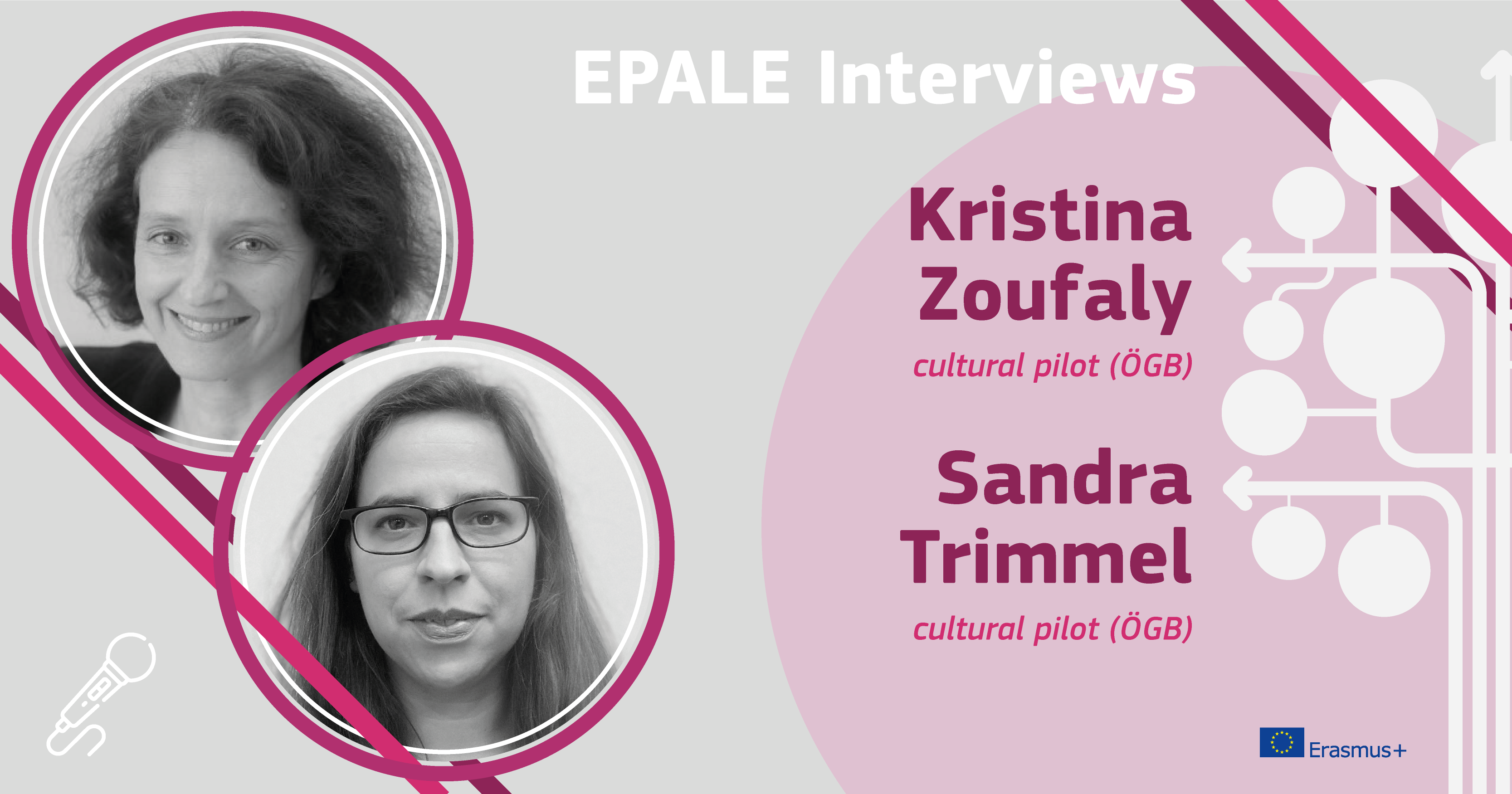
According to Statistics Austria, roughly half of the population visits cultural offerings such as the theatre, the opera, museums, or art galleries.
And the coronavirus pandemic is creating additional barriers to attending art and cultural events.
The cultural pilots ("Kulturlotsinnen") of the Austrian Trade Union Federation aim to address this issue and have set the goal of promoting adults’ participation in a wide range of cultural offerings. Together with employee representatives, they organise visits to art and cultural events for workers in Vienna. These efforts are focused on enabling people to experience art and culture together with their colleagues. In the following interview, two cultural pilots explain why cultural education is necessary and how the project aims to increase participation in art and culture.
As a layperson, one might think that people either take advantage of cultural offerings or they don’t. Why is cultural education, which is always connected with a learning aspect, necessary?
Kristina Zoufaly: Art and culture are financed with tax money for the most part. If everyone pays, everyone should also benefit. That’s our task: to make access as broad as possible and make it clear that you don’t have to have any expertise. I can know a lot, but that has nothing to do with the fact that the offer is also open to me.
Sandra Trimmel: We also shouldn’t make it so easy and say, “If someone doesn’t go, it means they aren’t interested.” That simply isn’t true at all. Many people are fundamentally interested, but as is so often the case, everyday life gets in the way, so it’s all the more important to grab people and say, “On such-and-such day, we’re going to go there together.” That’s often enough of a push. We want to make participation as broad as possible and show that culture is for everyone, not just for people who have a deeper understanding of it.
So, you want to open up access to art and culture to everyone – what are your experiences with this?
Kristina Zoufaly: We’ve been doing this for a really long time now – since 2009 – and it’s unbelievable that going to art or cultural institutions is simply out of the question for many people. For example, there was a tram driver who said, “The Burgtheater, the Kunsthistorisches Museum – yeah, I know those places, I’ve known them for years now!” And then we said, “Ah, super. And have you ever gone inside?” And he answered, “Why would I go in? I drive past them with the tram.”
That shows us that lots of people are aware of cultural institutions as buildings, but don’t realise that they can also go in.
Here’s another example: We were at the Museumsquartier with a company once and the participants said that they didn’t know that you could walk through it.
We’re also often in a bubble in this context. It’s often difficult to pinpoint why people don’t go to cultural institutions.
Sandra Trimmel: But everyone agrees that it’s important for these places to exist, for the tourists or for whoever. There’s tremendous consensus here; lots of people say, “Yes, of course we need a big, prestigious theatre, but it’s just not for me.” We want to counteract this line of thinking.
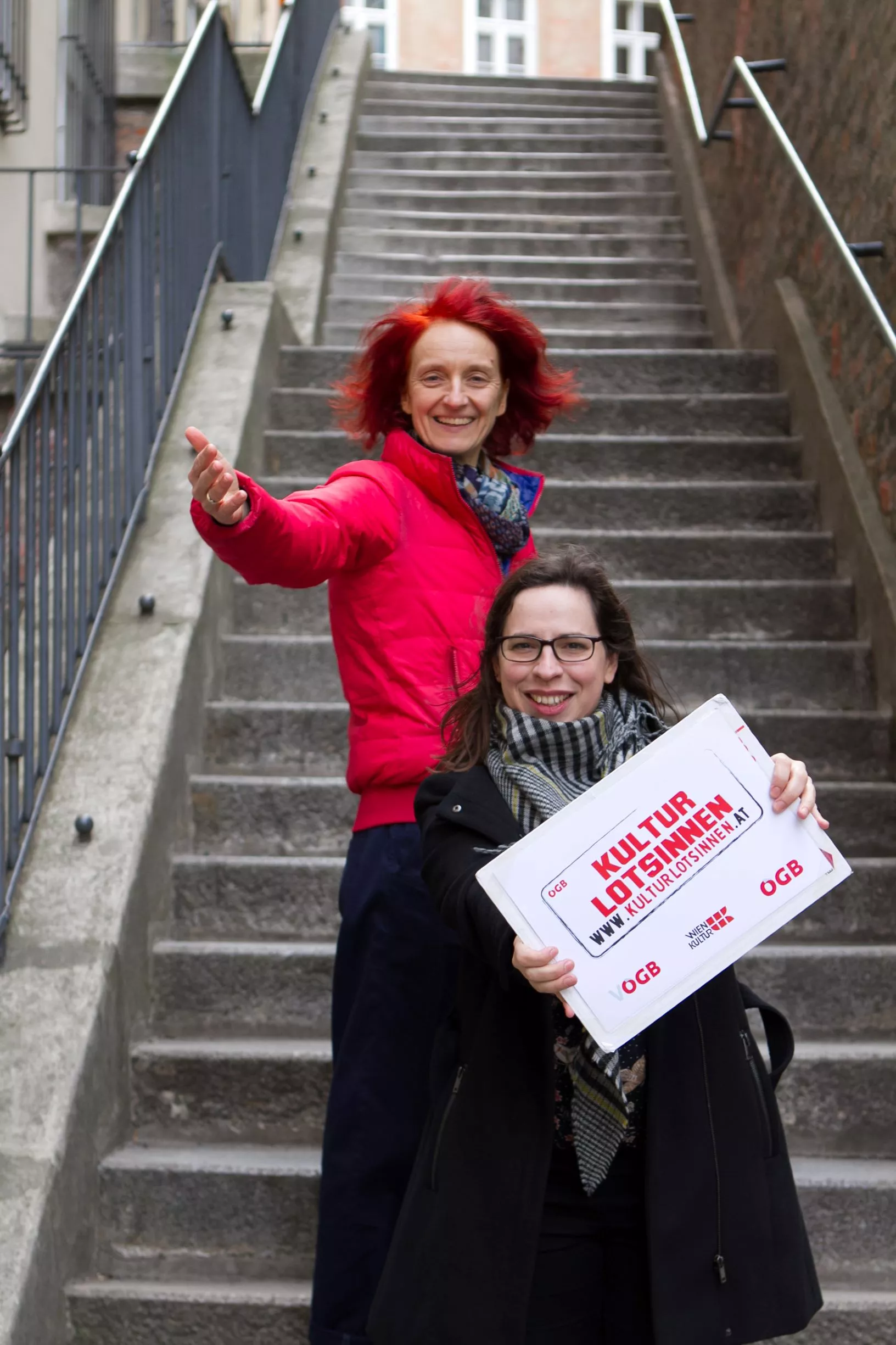
That touches on a key goal that the cultural pilots pursue according to the information on the website: the democratisation of art and culture. How and why?
Sandra Trimmel: As I mentioned before, tax money is a major aspect. Many people are not aware that culture is jointly financed. And the use of these offerings is not as broadly based as the financing method is. For us, democratisation also means significantly increasing access. Because in the past, some people did not really feel like the offerings were intended for them or did not feel as welcome as they should. Thus, it’s often about the question of why someone doesn’t go to art and cultural events. And what can we do to get people to go so that there is wider access and the people who take advantage of cultural institutions make up a larger portion of society?
Kristina Zoufaly: And there’s also another aspect that comes into play: Cultural institutions have education programmes for children and young people and discounted prices for retirees. But there’s nothing for other adults. They’re expected to visit these places of their own accord. Sometimes there are also behind-the-scenes tours for sponsors, who also receive tickets. So, there’s something extra for the people who have plenty, but there’s actually nothing for normal people who are interested.
Everyone tries to reach apprentices and teenagers. This is also easier because they’re already part of a group. How do I achieve this with adults? It can happen via the workplace – through the works council using the network of trade unions. That’s also what’s so special about our project: the strong network. And for works council members, it’s also a great opportunity for people to get to know them in connection with something nice, to not just deal with problems and difficulties. They can be part of something that brings people together and serves as a community-building activity.
Sandra Trimmel: We also strongly believe that cultural events are enriching, that they broaden people’s horizons, and that people can enjoy them. And with this in mind, they should be accessible to as many people as possible.
Where is the benefit for individuals who may not otherwise find access to art and culture?
Kristina Zoufaly: I think that it’s important to experience that there is something besides work and home, which are also largely oriented towards a specific purpose: At work I earn my living and at home I do housework and have private time. But there’s also something between these two ends of the spectrum in these places, and we focus on this free space. It’s about realising that these places have something to offer me. I can also go there alone – art and culture are personal but not private.
Sandra Trimmel: And there’s also another aspect: If you feel like they’re not intended for you, art and culture have an elite air about them that shows that you’re not part of this elite. So, it’s also about self-empowerment: I dare to go there, I’m welcome, I belong.
And recognising that you’re part of the community in the city is a nice and important feeling.
Naturally, the benefit of art and culture can be different for everyone, but if you’ve never experienced it, you just think, “That’s exhausting, you have to concentrate there.” But actually, you don’t have to do anything at all.
You have both been working as cultural pilots for over 10 years: Are there changes you’ve observed over time – either in the presentation or acceptance of the offerings or in the context of education and learning about art and culture?
Sandra Trimmel: With regard to the cultural institutions, I do think you can tell that they’ve become more willing to experiment in terms of the presentation. For instance, they sometimes try not to just do conventional guided tours any more. But this is still only on a selective basis – in most cases, the presentation is still conservative. This probably also has to do with the visitors’ expectations.
Kristina Zoufaly: I also feel like not that much has changed. But one thing that’s noticeable is that institutions have increasingly started to offer the things they offer us for the programme to others, such as behind-the-scenes tours. So that seems to have proven effective.
Art and culture were/are being hit particularly hard by the coronavirus crisis – how was cultural education possible during the lockdown? Did this lead to any changes in the presentation?
Sandra Trimmel: With regard to the presentation in Vienna, there have been no fundamental changes in terms of the content. There were many online offerings with varying levels of quality. But the impression I get is that everyone is looking forward to being able to visit cultural institutions in person. The online offerings often have less self-determination: If I want to stay at a certain picture longer or want to sit somewhere else, it’s more difficult online. If online offerings continue, it will likely be on a small scale and maybe for people outside of Vienna.
Kristina Zoufaly: In part, cultural institutions also fell asleep at the wheel – they waited a long time before they started offering anything. And very little of it was interactive.
Sandra Trimmel: There were also major differences in the level of quality of the online interactions. In this case, it made a big difference in one’s own experience whether there was someone currently at the museum who could be seen online or everyone was sitting at home in the living room.
What will autumn be like?
Kristina Zoufaly: We have bookings already, but it’s all still very vague. The question remains what the rules will be.
One positive aspect is that everyone who is participating at the moment is very interested and willing to accept a lot, such as masks, tests, and restrictions. There are simply huge barriers here.
Sandra Trimmel: We hope that we’ll come into contact with lots of people and will be able to offer something.
About the project and the Austrian Trade Union Federation
The Cultural Pilots project in Vienna was conceived by the Verband Österreichischer Gewerkschaftlicher Bildung (VÖGB, Austrian Trade Union Education Association). It is subsidised by the City of Vienna. Graz has also had a cultural pilot since 2013. The Graz project is an initiative of the VÖGB in cooperation with IG Kultur Steiermark, Graz Kultur, the Styrian Economic Chamber, and Energie Steiermark.
The VÖGB is part of the Austrian Trade Union Federation (ÖGB) and organises educational and cultural offerings for employee representatives and union members.
The ÖGB sees itself as a non-partisan body representing the interests of employees. It represents the interests of all employees vis-à-vis employers, the government, and political parties. This is also anchored in its statutes, as is the right of members to use their free time in a meaningful way and visit recreational facilities. As such, one of the organisation’s priorities is to empower people to be able exercise this right.

____________
Additional links:
- Cultural Pilots Vienna: https://www.kulturlotsinnen.at/cms/S08/S08_40.0/home
- Cultural Pilots Styria: https://stmk.kulturlotsinnen.at/projekt.html
____________
Text/Author of original article in German: Lucia Paar/CONEDU
Redaktion/Editing of original article in German: Jennifer Friedl /CONEDU
Cover photo: © LisaLux



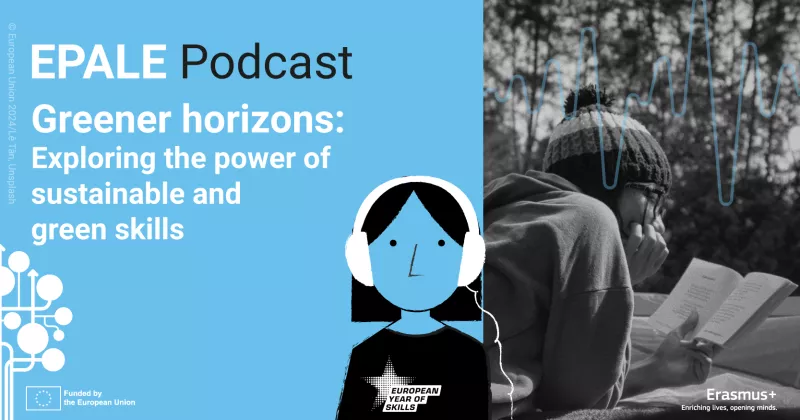
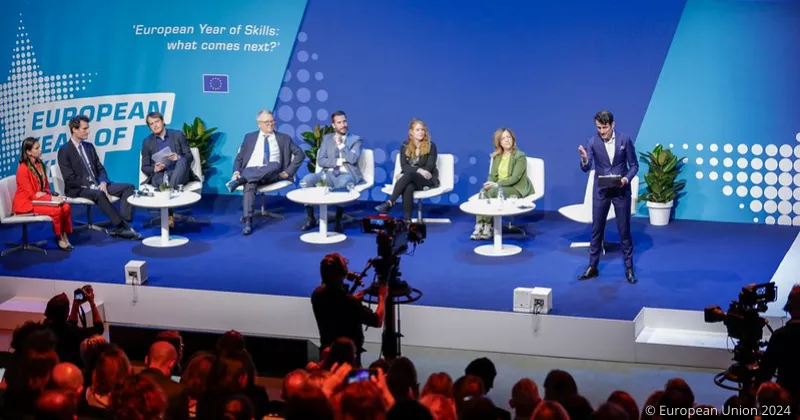
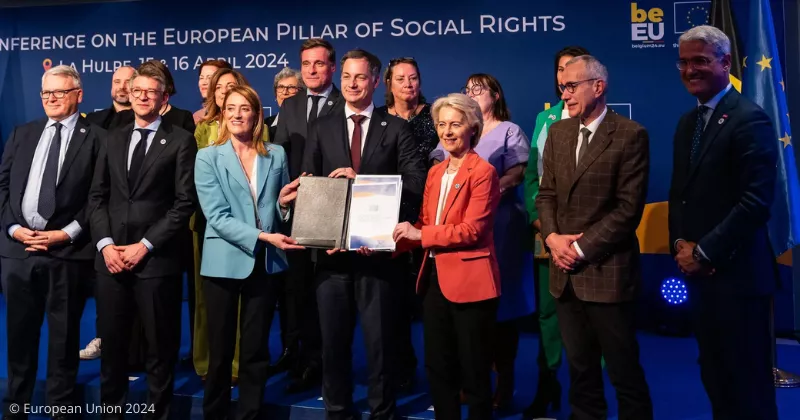
Témahét
Érdekes, hogy a koncepció "nem célorientált valóság" szóba került. E témahét cikkei segíteni a megértésben, hogy a kultúra valódi, minőségi életet jelent.